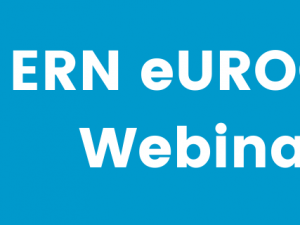
Patient involvement is essential to the success or ERNs, and we made sure that our European Patient Advisory Group (ePAG) representatives were heavily involved in the annual Strategic Board Meeting, giving presentations, opinions and advice to the healthcare professionals who were present. Topics covered included the results of eUROGEN’s Patient Involvement Health-Check scorecard, patient journeys, transition, and objectives for the next year.
Dalia Aminoff (AIMAR), June Rogers (Bladder and Bowel UK) and Serena Bartezzati (AICI) presented the main ePAG update. In terms of a Patient Involvement Health-Check scorecard, eUROGEN had scored ‘good’ or ‘excellent’ in all categories, although it was felt more interaction with patients is needed in terms of increasing and improving patient involvement in patient empowerment, EAU activities, engagement in guidelines and patient information, and by supporting educational events for patients. June Rogers is now a member of the EAU ePAG to ensure a link with the eUROGEN ePAGs.
June Rogers and Christian Groen (Patient Society for Bladder Exstrophy, Netherlands) also gave presentations on new patient journeys for anorectal malformation and exstrophy which outline the diagnosis and treatment process and recommendations. The aim is to develop a Patient Journey for each eUROGEN Disease Area. eUROGEN will work on getting these translated using the European Commission’s new e-translation tool, after which they can be checked by a national expert and by the ePAGs.
Dalia Aminoff presented on transition from the patient perspective. Many of the Disease Areas covered by eUROGEN require lifelong care so this is a priority area and we are developing a transition working group with Dan Wood as the nominated representative. It was suggested that our Workstreams 1 and 2 should work more closely together; ePAGs, eUROGEN and ERNICA should work together in a joint group on transition; a survey should be conducted to understand how healthcare providers in different countries deal with transition and what their models are; and that patient pathways should be established.
Other ePAG objectives for the next year are to: map the common needs of rare uro-recto-genital conditions; provide more patient information on the eUROGEN website; continue awareness raising at national and European level; develop a common patient feedback mechanism through a patient satisfaction project with EURORDIS, and recruit new ePAG representatives.
At the end of the meeting, Matt Johnson (EURORDIS) thanked eUROGEN for their hard work, the increase in quality of life they are providing, and for making patients feel included as part of the community, not excluded.




